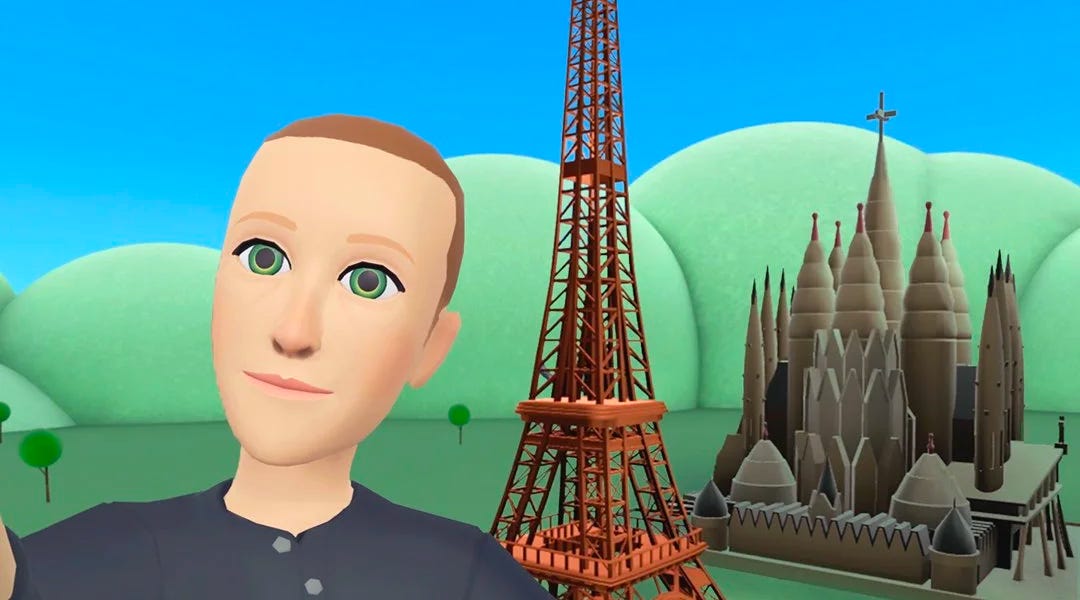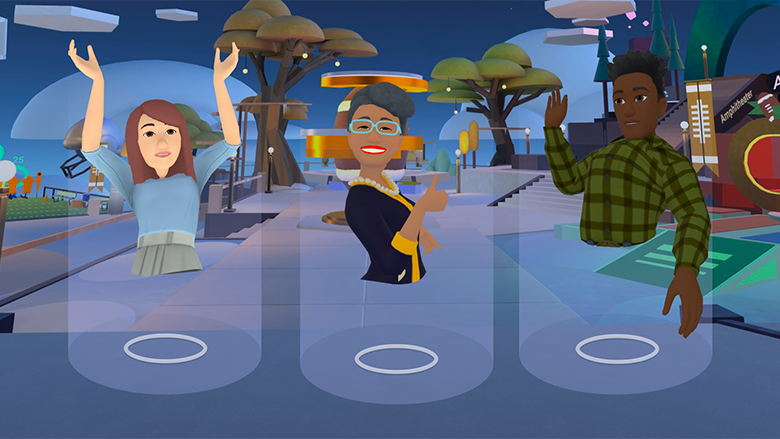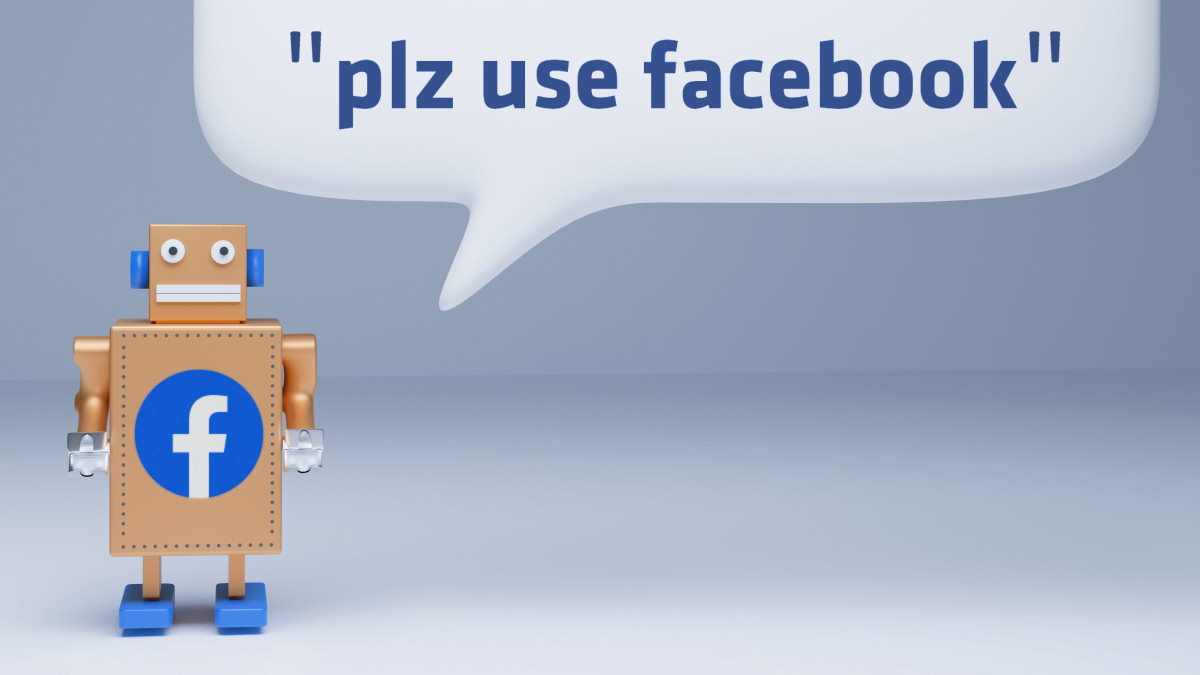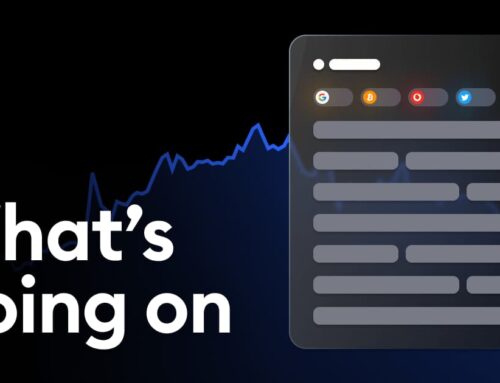Meta’s “AI superintelligence” effort sounds just like its failed “metaverse”
July 3, 2025
In a memo to employees earlier this week, Meta CEO Mark Zuckerberg shared a vision for a near-future in which “personal [AI] superintelligence for everyone” forms “the beginning of a new era for humanity.” The newly formed Meta Superintelligence Labs—freshly staffed with multiple high-level acquisitions from OpenAI and other AI companies—will spearhead the development of “our next generation of models to get to the frontier in the next year or so,” Zuckerberg wrote.
Reading that memo, I couldn’t help but think of another “vision for the future” Zuckerberg shared not that long ago. At his 2021 Facebook Connect keynote, Zuckerberg laid out his plan for the metaverse, a virtual place where “you’re gonna be able to do almost anything you can imagine” and which would form the basis of “the next version of the Internet.”
“The future of the Internet” of the recent past.
Credit:
Meta
Zuckerberg believed in that vision so much at the time that he abandoned the well-known Facebook corporate brand in favor of the new name “Meta.” “I’m going to keep pushing and giving everything I’ve got to make this happen now,” Zuckerberg said at the time. Less than four years later, Zuckerberg seems to now be “giving everything [he’s] got” for a vision of AI “superintelligence,” reportedly offering pay packages of up to $300 million over four years to attract top talent from other AI companies (Meta has since denied those reports, saying, “The size and structure of these compensation packages have been misrepresented all over the place”).
Once again, Zuckerberg is promising that this new technology will revolutionize our lives and replace the ways we currently socialize and work on the Internet. But the utter failure (so far) of those over-the-top promises for the metaverse has us more than a little skeptical of how impactful Zuckerberg’s vision of “personal superintelligence for everyone” will truly be.
Meta-vision
Looking back at Zuckerberg’s 2021 Facebook Connect keynote shows just how hard the company was selling the promise of the metaverse at the time. Zuckerberg said the metaverse would represent an “even more immersive and embodied Internet” where “everything we do online today—connecting socially, entertainment, games, work—is going to be more natural and vivid.”
“Teleporting around the metaverse is going to be like clicking a link on the Internet,” Zuckerberg promised, and metaverse users would probably switch between “a photorealistic avatar for work, a stylized one for hanging out, and maybe even a fantasy one for gaming.” This kind of personalization would lead to “hundreds of thousands” of artists being able to make a living selling virtual metaverse goods that could be embedded in virtual or real-world environments.
“Lots of things that are physical today, like screens, will just be able to be holograms in the future,” Zuckerberg promised. “You won’t need a physical TV; it’ll just be a one-dollar hologram from some high school kid halfway across the world… we’ll be able to express ourselves in new joyful, completely immersive ways, and that’s going to unlock a lot of amazing new experiences.”
A pre-rendered concept video showed metaverse users playing poker in a zero-gravity space station with robot avatars, then pausing briefly to appreciate some animated 3D art a friend had encountered on the street. Another video showed a young woman teleporting via metaverse avatar to virtually join a friend attending a live concert in Tokyo, then buying virtual merch from the concert at a metaverse afterparty from the comfort of her home. Yet another showed old men playing chess on a park bench, even though one of the players was sitting across the country.
Meta-failure
Fast forward to 2025, and the current reality of Zuckerberg’s metaverse efforts bears almost no resemblance to anything shown or discussed back in 2021. Even enthusiasts describe Meta’s Horizon Worlds as a “depressing” and “lonely” experience characterized by “completely empty” venues. And Meta engineers anonymously gripe about metaverse tools that even employees actively avoid using and a messy codebase that was treated like “a 3D version of a mobile app. “
Even Meta employees reportedly don’t want to work in Horizon Workrooms.
Credit:
Facebook
The creation of a $50 million creator fund seems to have failed to encourage peeved creators to give the metaverse another chance. Things look a bit better if you expand your view past Meta’s own metaverse sandbox; the chaotic world of VR Chat attracts tens of thousands of daily users on Steam alone, for instance. Still, we’re a far cry from the replacement for the mobile Internet that Zuckerberg once trumpeted.
Then again, it’s possible that we just haven’t given Zuckerberg’s version of the metaverse enough time to develop. Back in 2021, he said that “a lot of this is going to be mainstream” within “the next five or 10 years.” That timeframe gives Meta at least a few more years to develop and release its long-teased, lightweight augmented reality glasses that the company showed off last year in the form of a prototype that reportedly still costs $10,000 per unit.
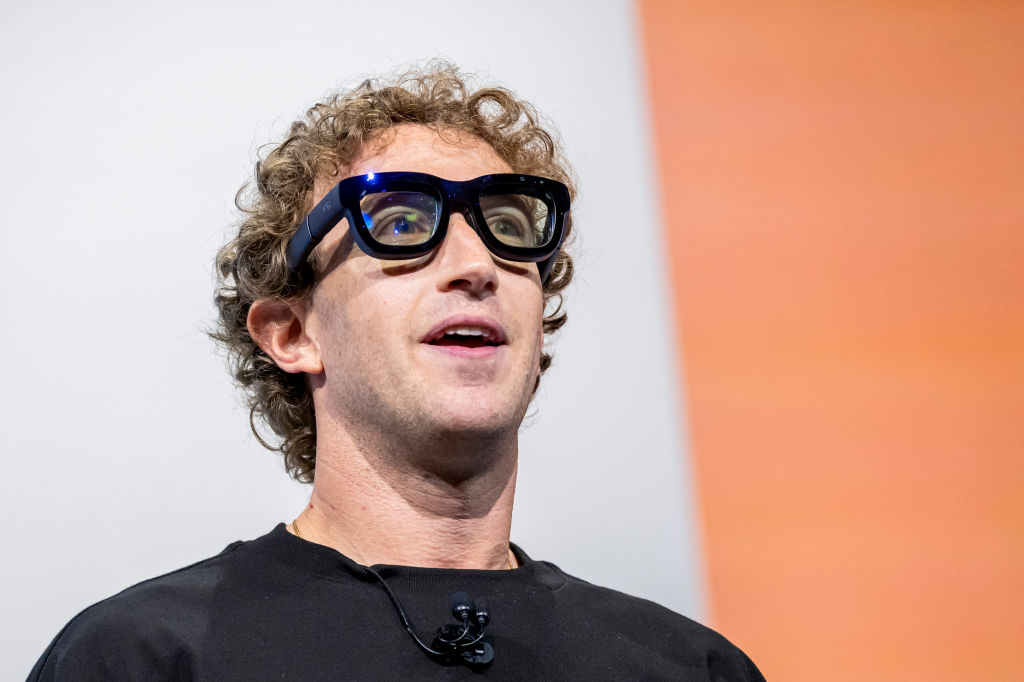
Zuckerberg shows off prototype AR glasses that could change the way we think about “the metaverse.”
Maybe those glasses will ignite widespread interest in the metaverse in a way that Meta’s bulky, niche VR goggles have utterly failed to. Regardless, after nearly four years and roughly $60 billion in VR-related losses, Meta thus far has surprisingly little to show for its massive investment in Zuckerberg’s metaverse vision.
Our AI future?
When I hear Zuckerberg talk about the promise of AI these days, it’s hard not to hear echoes of his monumental vision for the metaverse from 2021. If anything, Zuckerberg’s vision of our AI-powered future is even more grandiose than his view of the metaverse.
As with the metaverse, Zuckerberg now sees AI forming a replacement for the current version of the Internet. “Do you think in five years we’re just going to be sitting in our feed and consuming media that’s just video?” Zuckerberg asked rhetorically in an April interview with Drawkesh Patel. “No, it’s going to be interactive,” he continued, envisioning something like Instagram Reels, but “you can talk to it, or interact with it, and it talks back, or it changes what it’s doing. Or you can jump into it like a game and interact with it. That’s all going to be AI.”
As with the Metaverse, Zuckerberg sees AI as revolutionizing the way we interact with each other. He envisions “always-on video chats with the AI” incorporating expressions and body language borrowed from the company’s work on the metaverse. And our relationships with AI models are “just going to get more intense as these AIs become more unique, more personable, more intelligent, more spontaneous, more funny, and so forth,” Zuckerberg said. “As the personalization loop kicks in and the AI starts to get to know you better and better, that will just be really compelling.”
Zuckerberg did allow that relationships with AI would “probably not” replace in-person connections, because there are “things that are better about physical connections when you can have them.” At the same time, he said, for the average American who has three friends, AI relationships can fill the “demand” for “something like 15 friends” without the effort of real-world socializing. “People just don’t have as much connection as they want,” Zuckerberg said. “They feel more alone a lot of the time than they would like.”
Zuckerberg also sees AI leading to a flourishing of human productivity and creativity in a way even his wildest metaverse imaginings couldn’t match. Zuckerberg said that AI advancement could “lead toward a world of abundance where everyone has these superhuman tools to create whatever they want.” That means personal access to “a super powerful [virtual] software engineer” and AIs that are “solving diseases, advancing science, developing new technology that makes our lives better.”
That will also mean that some companies will be able to get by with fewer employees before too long, Zuckerberg said. In customer service, for instance, “as AI gets better, you’re going to get to a place where AI can handle a bunch of people’s issues,” he said. “Not all of them—maybe 10 years from now it can handle all of them—but thinking about a three- to five-year time horizon, it will be able to handle a bunch.“
In the longer term, Zuckerberg said, AIs will be integrated into our more casual pursuits as well. “If everyone has these superhuman tools to create a ton of different stuff, you’re going to get incredible diversity,” and “the amount of creativity that’s going to be unlocked is going to be massive,” he said. “I would guess the world is going to get a lot funnier, weirder, and quirkier, the way that memes on the Internet have gotten over the last 10 years.”
Compare and contrast
To be sure, there are some important differences between the past promise of the metaverse and the current promise of AI technology. Zuckerberg claims that a billion people use Meta’s AI products monthly, for instance, utterly dwarfing the highest estimates for regular use of “the metaverse” or augmented reality as a whole (even if many AI users seem to balk at paying for regular use of AI tools). Meta coders are also reportedly already using AI coding tools regularly in a way they never did with Meta’s metaverse tools. And people are already developing what they consider meaningful relationships with AI personas, whether that’s in the form of therapists or romantic partners.
Still, there are reasons to be skeptical about the future of AI when current models still routinely hallucinate basic facts, show fundamental issues when attempting reasoning, and struggle with basic tasks like beating a children’s video game. The path from where we are to a supposed “superhuman” AI is not simple or inevitable, despite the handwaving of industry boosters like Zuckerberg.
Artist’s conception of Carmack’s VR avatar waving goodbye to Meta.
At the 2021 rollout of Meta’s push to develop a metaverse, high-ranking Meta executives like John Carmack were at least up front about the technical and product-development barriers that could get in the way of Zuckerberg’s vision. “Everybody that wants to work on the metaverse talks about the limitless possibilities of it,” Carmack said at the time (before departing the company in late 2022). “But it’s not limitless. It is a challenge to fit things in, but you can make smarter decisions about exactly what is important and then really optimize the heck out of things.”
Today, those kinds of voices of internal skepticism seem in short supply as Meta sets itself up to push AI in the same way it once backed the metaverse. Don’t be surprised, though, if today’s promise that we’re at “the beginning of a new era for humanity” ages about as well as Meta’s former promises about a metaverse where “you’re gonna be able to do almost anything you can imagine.”
Search
RECENT PRESS RELEASES
Related Post

